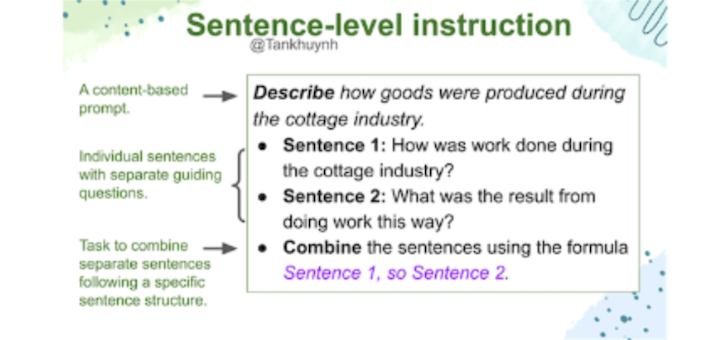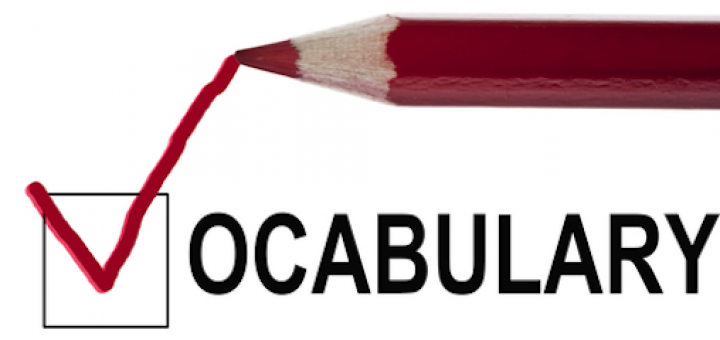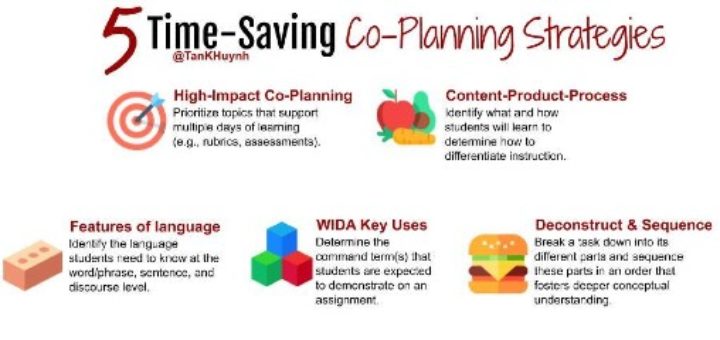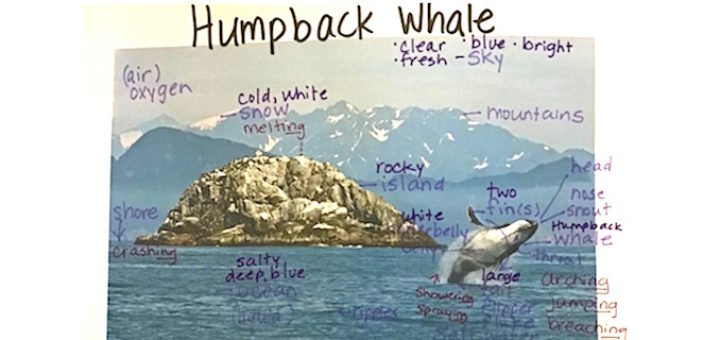Tagged: academic language
While many multilingual students gain social language in two years, abstract, highly structured academic language requires much more time. Tan Huynh advocates teaching MLs at the sentence level because it facilitates understanding of content and fosters academic writing skills.
Under the canopy of state standards, student knowledge of academic vocabulary counts more than ever, across all the content areas. In this collection, MiddleWeb has gathered together our most helpful articles about the kind of word study that’s time sensitive and sticks in your long-term memory.
When co-planning is an efficient use of time and in the service of our colleagues’ responsibilities, fellow teachers will see co-planning less like a job they have to do and more of a step they want to do. Tan Huynh shares detailed strategies for co-planning success.
“Imperative means the same thing as important, so why can’t we just say important?” asked Adele, a student in Lauren Brown’s US history class. How do we help kids learn the academic vocabulary they need to enrich writing and deepen understanding? Brown means to find out.
For English learners, academic language is much more challenging to master than social language. Specialist Valentina Gonzalez says EL students need “massive opportunities” on a daily basis to practice using content-specific words and phrases. She shares 10 techniques.
Stressing the need to provide wide fiction and informational text choices, the authors consider the needs of all readers while offering extensive activities for all classrooms. Reviewer Jenni Miller found the book “wonderful” – both informative and encouraging.
Calling academic language “the lifeblood of learning in all classes,” Jeff Zwiers describes how focusing on language use will lead to improved student achievement. Then he shows teachers how to help build it, says reviewer Mara Southorn.














